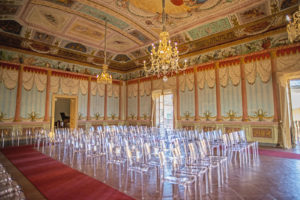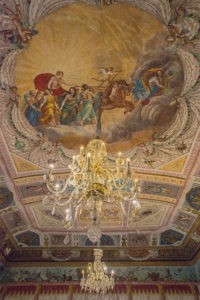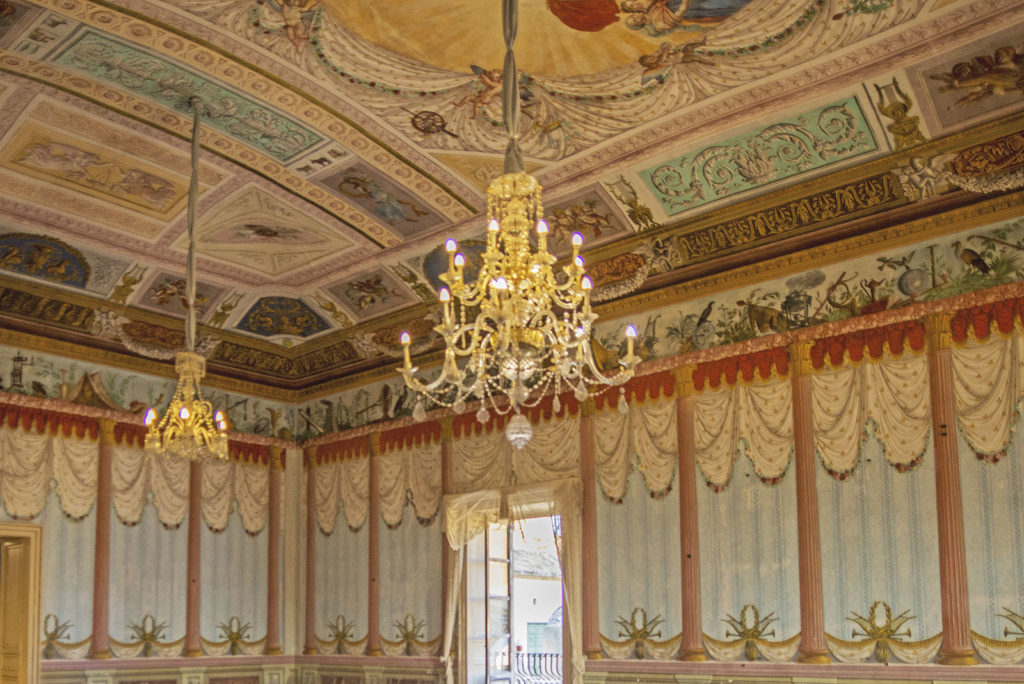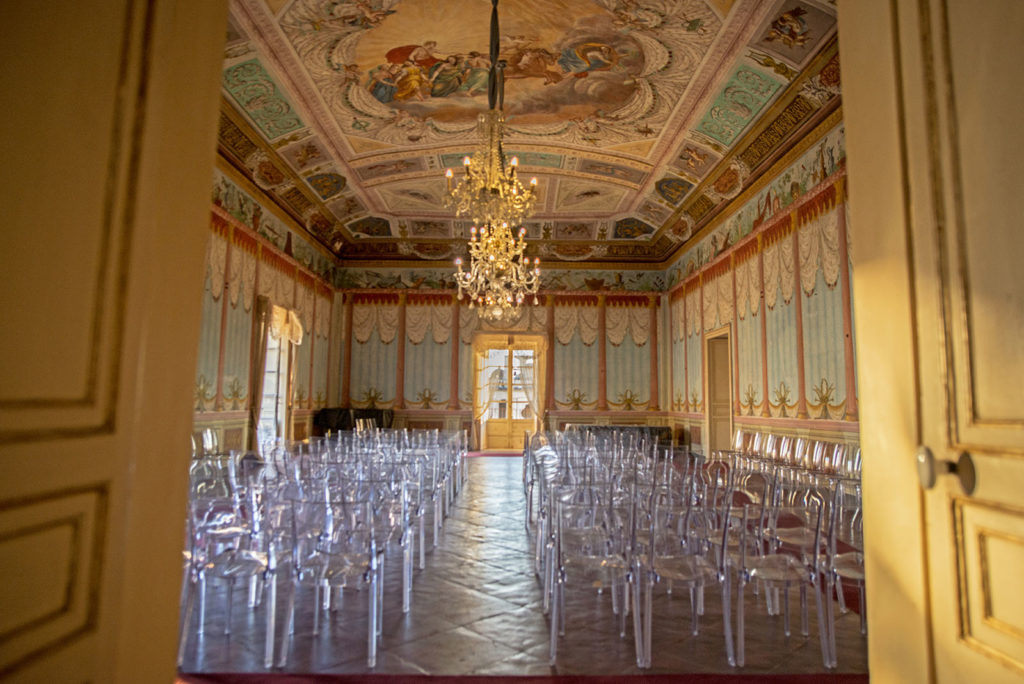Today you can visit the piano nobile (main floor) of Palazzo Nicolaci, where you can discover and imagine how people lived in the time of Don Giacomo Nicolaci. The Nicolaci family made its fortune thanks to the tuna trade and became part of the aristocracy as it acquired the rank of nobility.
But let’s return to the palace.
It has around ninety rooms and splendid, shimmering and precious glass chandeliers.
The most important room was the Salone delle Feste (Hall of Feasts), like in any respectable noble palace. The ceiling depicts Apollo driving the chariot and chasing Aurora.


A little further down, like a ribbon running horizontally along all the walls, there is a symbolic decoration, a nod to the activities and interests of the
commissioner
.
In fact, you can spot fishing nets, telescopes, rifles, chessboards and antique vases. The painting technique of
trompe l'oeil
, from the French for “deceive the eye”, was used on the walls.
 The decoration makes those in the room believe that they are in an outdoor environment, in this case under a portico. There is the balustrade, the columns that seem to support the structure above, the curtains and the blue colour that simulates the sky. This is where we have to imagine the rich feasts in the late 18th century, dances, banquets, ladies in cumbersome embroidered dresses, gentlemen with absurd wigs and good music to delight the guests.
The decoration makes those in the room believe that they are in an outdoor environment, in this case under a portico. There is the balustrade, the columns that seem to support the structure above, the curtains and the blue colour that simulates the sky. This is where we have to imagine the rich feasts in the late 18th century, dances, banquets, ladies in cumbersome embroidered dresses, gentlemen with absurd wigs and good music to delight the guests.